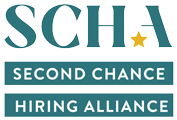WHY IT MATTERS
One in seven adults in the District has a publicly available criminal record and it is estimated that only 30-50% of these individuals are able to find and maintain employment.
By hiring people who have been impacted by the criminal legal system, D.C.-area employers are opening their job selection process up to new, untapped talent that’s ready and eager to work.
Improving your community
Navigating how to find a career-trajectory job after incarceration is difficult and laden with obstacles – also known as collateral consequences. In the District of Columbia, navigating this path becomes increasingly more difficult, as justice impacted D.C. residents must deal with overlapping local and federal jurisdictions, a lack of resources to help people impacted by the criminal legal system, and the stigma associated with a criminal record and incarceration.
The impacts of D.C.’s criminal legal system are not felt by all D.C. residents equally. By supporting justice impacted people in finding and maintaining employment, the SCHA is supporting D.C.’s Black residents and community. Roughly 90% of people incarcerated at the D.C. Department of Corrections were Black, despite Black people making up a little less than half of D.C.’s population. Racial disparities persist in the Federal Bureau of Prisons (BOP), with Black people accounting for 95% of people incarcerated in the BOP for a D.C. Code offense.
Employment provides stability, income, and a sense of belonging in the community, while also providing employers with enthusiastic, qualified employees. You can click here to learn more about the benefits of hiring justice impacted people.
